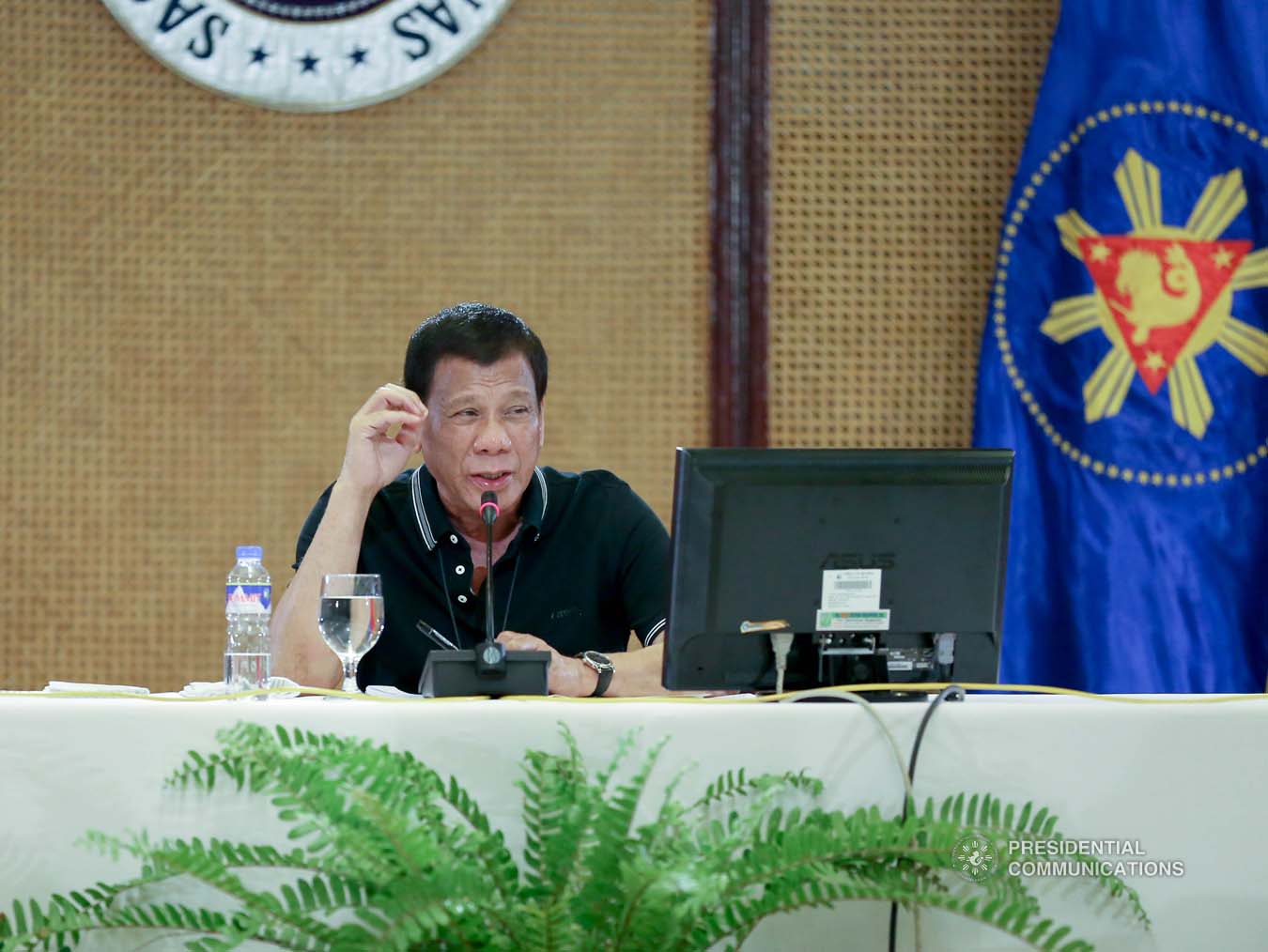Headline
OP proceedings vs. appointees, local execs postponed

FILE: President Rodrigo Roa Duterte at the Malacañan Palace on March 16, 2020. KARL NORMAN ALONZO/PRESIDENTIAL PHOTO
MANILA — Amid the coronavirus disease 2019 (Covid-19) pandemic in the country, President Rodrigo Duterte has ordered the postponement of the Office of the President’s (OP) proceedings against presidential appointees and local officials who are facing complaints.
Under Administrative Order (AO) 27 inked on April 7, Duterte set guidelines to govern the administrative disciplinary cases, appeals to or petitions for review filed with the OP during the implementation of Luzon-wide enhanced community quarantine (ECQ).
AO 27 covers all appeals, petitions for review, and administrative disciplinary cases filed against presidential appointees; governors; mayors and vice mayors of highly urbanized cities, independent component cities, and component cities; city and municipality mayors and vice mayors of Metro Manila; and members of provincial and city boards.
The order provides that proceedings that are scheduled to take place during the ECQ period should be deemed “cancelled.”
“The suspension of the periods shall be effective beginning 17 March 2020,” AO 27 said.
The proceedings would be rescheduled upon the lifting of the ECQ by the Inter-Agency Task Force for the Management of Emerging Infectious Diseases (IATF-EID) or the OP, according to AO 27.
“Since the implementation of the ECQ, the mobility of people over Luzon and even in certain jurisdictions in Visayas and Mindanao has been heavily restricted, and lawyers, law firms, and postal services have not been included in the list of exempted individuals, entities, and services from the ECQ,” the order read.
Duterte signed AO 27 after he extended the implementation of ECQ in Luzon until April 30 to curb the spread of Covid-19 in the country.
Other areas in Visayas and Mindanao have also been placed under ECQ in a bid to stop the further transmission of Covid-19.
AO 27 states that the reglementary periods for the commencement of appeals, petitions for review, and administrative disciplinary cases, filing of pleadings, appearances, motions, notices, and all other papers should be deemed “interrupted” during the entire duration of ECQ.
The order, however, is not applicable to “urgent cases which are necessary to enable the government to act expeditiously on matters affecting the current public health emergency.”
The new guidelines, according to AO 27, should be without prejudice to any relevant future directive of the IATF-EID or the OP.
“If any provision of this Order is declared invalid or unconstitutional, the other provisions not affected thereby shall remain valid and subsisting,” it stressed.





















